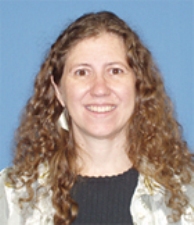Jan 17 2013
How is a worldwide community of scientists using 16 kilometres of wide vacuum tubes to catch “ripples of space-time”? In an entirely new means of cosmic exploration, researchers at the Laser Interferometer Gravitational-Wave Observatory (LIGO) Scientific Collaboration are trying to detect gravitational waves – a phenomenon theorized by Einstein almost a century ago. But what will this new window to the universe mean?
 Dr. Gabriela Gonzalez. Credit: Louisiana State University / Perimeter Institute
Dr. Gabriela Gonzalez. Credit: Louisiana State University / Perimeter Institute
On Wednesday, February 6, as part of Perimeter Institute’s Public Lecture Series presented by Sun Life Financial, physicist and LIGO spokesperson Dr. Gabriela Gonzalez will explore how LIGO is pushing the frontiers of science and engineering to help us understand the universe.
Dr. Gonzalez is a Professor of Physics and Astronomy at Louisiana State University and spokesperson for the LIGO Scientific Collaboration. She received her PhD in 1995 from Syracuse University, and has been heavily involved with the LIGO project for over a decade. Dr. Gonzalez’s research group is involved with the characterization of the noise in the LIGO detectors, the calibration of the detectors, and the analysis of the data they produce. In addition to many other honours, in 2007 she won the Edward A. Bouchet Award of the American Physical Society for her significant impact on the field of gravitation wave physics.
Gonzalez’s lecture, entitled “How to catch Einstein’s wave, and see black holes in the process”, will be held on Wednesday, February 6 at 7:00 PM ET in Waterloo, Ontario. Tickets will be available starting Monday, January 21, 2013.